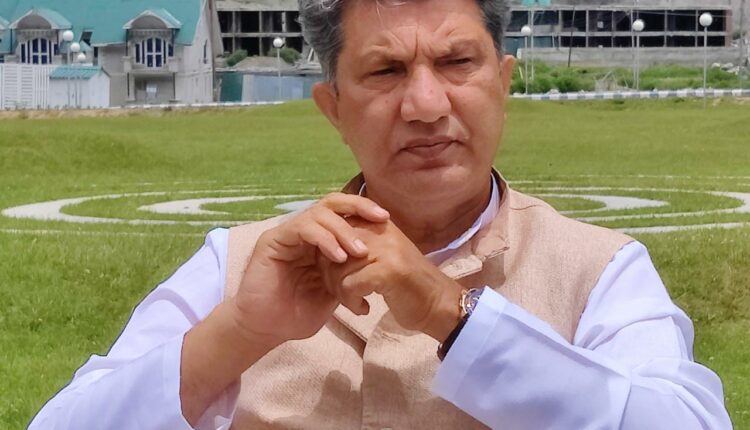JKCSF Raises Alarm Over Conversion of Zainkoot Kuhal into Sewage Drain
The Jammu Kashmir Civil Society Forum (JKCSF) has expressed deep concern over the transformation of the historic Zainkoot Kuhal into a sewage drain by the Srinagar Municipal Corporation (SMC).
In a strong statement, Qayoom Wani, the President of JKCSF, accused the land mafia and certain govt agencies of deliberately shrinking water bodies for commercial purposes, warning that the conversion of Zainkoot Kuhal is a grave threat to the region’s environmental and historical heritage.
Wani emphasized that Zainkoot Kuhal is not only of historical and economic significance but also serves as an important tributary to the Hokersar Wetland, a critical site for biodiversity in the region. He highlighted that the canal has played a key role in irrigation, contributing to the local economy and supporting the agricultural community.
“Water bodies and irrigation canals are being deliberately encroached upon and destroyed for commercial interests,” Wani said, urging immediate intervention by the Chief Minister. He warned that if the government does not address this issue, future generations may lose access to the vital water resources that have sustained the region for centuries.
In his statement, Wani raised pointed questions about the role of the SMC and the Flood Control Department in altering the canal’s function. He demanded a high-level inquiry into the matter, seeking to know who authorized the transformation of the canal into a sewage drain. “This is a sensitive issue, and the government must act quickly. If they remain silent, it will be a step towards erasing the history and ecology of the region,” Wani added.
The JKCSF has vowed to launch a statewide campaign to identify and combat the encroachment of all tributaries, irrigation kouls, and water bodies across the region. The group called for a comprehensive review of how such encroachments are allowed to take place and called on the Chief Minister to initiate a Vigilance probe into the matter to ensure accountability.


Comments are closed.